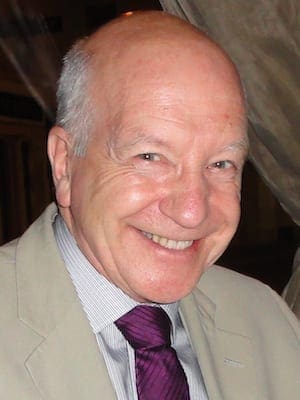How do we respond to the company of strangers? Do we find ourselves enriched or threatened?
In his book, “Practical Theology,” Terry A. Velling writes, “Our English word xenophobia means ‘fear of the stranger.’ If we turn the word around, we get the New Testament word for hospitality, philoxenia, ‘love of the stranger.’ Pure hospitality, like perfect love, casts out all fear. It is not easy to create this deep trust in one another, to convert xenophobia into philoxenia.”
I posted this statement on my Facebook page and later received a message from a friend who reads my blog.
She thinks deeply and compassionately about the world, and struggles to go on trusting the love of God, even to go on believing in God, given the sheer scale of suffering and human misery through war, displacement and the increasingly unsustainable demands being placed on our planet and on our economic and political and production systems.
And I have every sympathy with her.
Part of the problem for my friend was the application I made from the quote: “to convert xenophobia into philoxenia.” Now there’s a goal for 2018, to give ourselves to that.
But how? And for what motive?
We can’t individually be responsible for the whole world. Well, that’s obvious, but these hortatory urgings seem to suggest we should try.
The vast enormity of social upheavals due to war, economic migrations, famine and oppressive regimes creates unmanageable tidal waves of people looking to find home somewhere else.
Major displacements and migrations look like and feel like invasions for the host countries, or the countries that happen to be in the path of moving millions.
So what’s the point of that exhortation to convert xenophobia into philoxenia? Why ask the impossible?
Why demand a course of action that may even be counterproductive for a humanity struggling as it is to live at peace, to provide for a population increasing in incremental leaps?
And I hear those concerns and recognize the need for nuance, the urgency to seek considered and measured responses that weigh consequences and which try to balance realism with altruism, and compassion with pragmatism.
Add to this the necessary acknowledgement that this vast human community is deeply divided, and perhaps fatally mired in inequalities of resources and imbalances of political and economic systems of power.
Then too, the intransigence of human nature and our instincts for survival, our default to self-interest, our hunger for security and possessiveness of all that helps to build our sense of social security and national identity, each of which Western democracies cherish and defend under rubrics of freedom, sovereignty and the national interest.
And yes, all of these are huge obstacles in the way of the call to a free-wheeling welcome and unconstrained openness to the stranger.
But allowing for all of those arguments, cautions and legitimate concerns, I want to argue there is still a moral imperative on every human being to honor, respect and care for other human beings. Or so I think.
That comes directly and for me inescapably from a faith earthed in a Creator God, revealed in Jesus the Word incarnate and given decisive force in the reconciling death of Jesus and the hope of a new creation through the resurrection. Or so I think.
What then are the values that would help us to build strategies of welcome?
What kind of theology might fund and sustain a view of the human world that defaults to philoxenia instead of xenophobia?
At the levels of national and international policies, what contributions can be made by ordinary people, individually and communally, toward a human community less fearful of the stranger, less repelled by ‘the other,’ more accommodating to those who come into our national and local space looking for a place to call home?
And how do we work all this out in the national, local, church, neighborhood and individual spheres?
In other words, what would be actions, attitudes, words and ways of encountering that would make for life, for friendship and for human relationships of philoxenia?
Answer: I don’t know. Which isn’t the close of the discussion; it’s the starting place.
Because like it or not, we either build walls or build bridges. We become protectionist about our space and our resources or we learn the generosity of welcome.
We conduct our civil life on the basis of mistrust and grudging resentment at the presence of “the others” in our communities, or we choose to act and relate to others with respect for persons and take the risks of trust, believing that these others bring their gifts, skills, humanity and potential for good to our enrichment.
Somewhere between fear, grievance and hostility on the one hand, and unrealistic naiveté and irresponsible ignoring of consequences on the other hand, there is ground to be explored, there are attitudes to be challenged and changed, and there are possibilities for peaceful transition toward a future enriched by, not threatened by, a diversity of strangers.
James Gordon is part-time minister of Montrose Baptist Church in Angus, Scotland, and the former principal of the Scottish Baptist College. He is on the advisory board of the Centre for Ministry Studies, University of Aberdeen, and is honorary lecturer in the School of Divinity, History and Philosophy. A version of this article first appeared on his blog, Living Wittily, and is used with permission.
Part-time minister of Montrose Baptist Church in Angus, Scotland, and the former principal of the Scottish Baptist College. He is on the advisory board of the Centre for Ministry Studies, University of Aberdeen, and is honorary lecturer in the School of Divinity, History and Philosophy.

